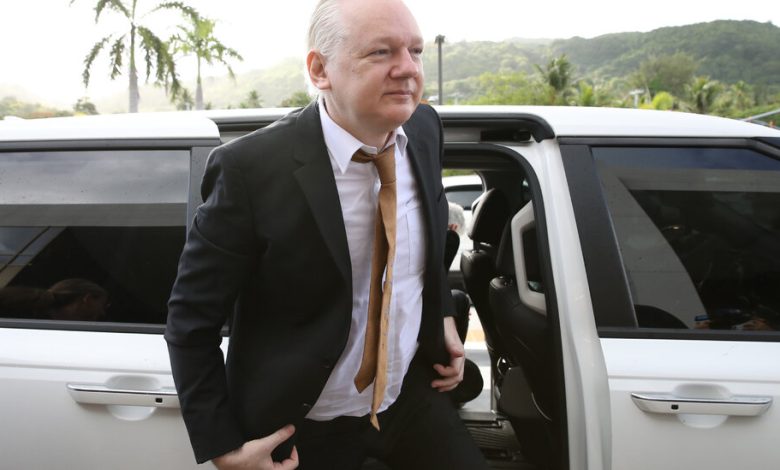Julian Assange Pleads Guilty to Espionage, Securing His Freedom

Julian Assange, the founder of WikiLeaks, pleaded guilty on Wednesday to a felony charge of violating the U.S. Espionage Act, securing his freedom under a plea deal that saw its final act play out in a remote U.S. courtroom in Saipan in the Western Pacific.
He appeared in court wearing a black suit with his lawyer, Jennifer Robinson, and Kevin Rudd, the Australian ambassador to the United States. He stood briefly and offered his plea more than a decade after he obtained and published classified secret military and diplomatic documents in 2010, moving a twisted case involving several countries and U.S. presidents closer to its conclusion.
It was all part of an agreement allowing him to return to his native country, Australia, after spending more than five years in British custody — most of it fighting extradition to the United States.
His family and lawyers documented his journey from London to Bangkok and on to Saipan, capital of the Northern Mariana Islands, a U.S. commonwealth. They posted photos and videos online from a chartered jet. His defense team said Mr. Assange was not allowed to fly commercial, and his wife, Stella, posted an urgent fund-raising appeal on the social media platform X, seeking help in covering the $520,000 cost that she said would have to be repaid to the Australian government.
In Australia, relatives, supporters and politicians seemed eager to welcome Mr. Assange home.
Prime Minister Anthony Albanese had lobbied heavily for his release. He responded to the deal by noting that the case had “dragged on for too long.” Many Australians seemed to agree, noting that Chelsea Manning, the person who had passed a vast trove of documents to WikiLeaks — including hundreds of thousands of military incident reports from Afghanistan — had already served her sentence and been set free.
Despite Australia’s own strict espionage laws and deeply-entrenched culture of secrecy — which would most likely have ensured many years in prison had his leaks focused on the Australian government — his return won support from politicians on both the left and right.
